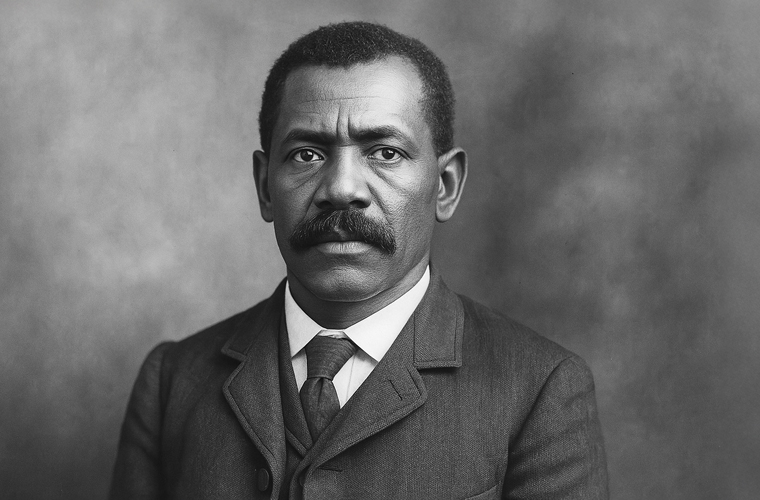The horrifying tale of how postmaster Frazier Baker and his daughter were lynched, and the home was set on fire
In 1897, Frazier B. Baker, a 40-year-old African-American schoolteacher and father of six, was appointed postmaster of Lake City, South Carolina, under President William McKinley’s administration. As the first African-American to hold this position in Lake City, Baker faced immediate hostility from local whites who resented Black Republican officeholders, particularly those appointed by an outgoing administration. They feared such appointments would embolden African Americans to challenge the systemic racism and violence, including past lynchings, prevalent in the South.
Despite threats reported to his superiors in Washington, little was done to protect Baker. Local whites launched a campaign to force his resignation, but Baker refused to step down. On February 22, 1898, a white mob attacked the Baker family’s home, which also served as the post office. The mob set the house ablaze to drive the family out and opened fire. Baker’s two-year-old daughter, Julia, was killed by a bullet that also wounded her mother, Lavinia. As the flames intensified, Baker attempted to flee but was gunned down at the door. Lavinia, despite her injury, rallied her five surviving children to escape the burning house. They hid in a nearby field under shrubbery. Their eldest daughter, Rosa, was shot in the arm while fleeing an armed pursuer. Only Sarah (age 7) and Millie (age 5) escaped unharmed. The family received no medical treatment in the three days they remained in Lake City.
The lynching sparked widespread condemnation, even in parts of the South. Still, some, including South Carolina Senator Benjamin Tillman, defended the mob, claiming the “proud people” of Lake City refused to accept a Black postmaster. On April 7, 1899, 13 men—Alonza Rogers, Charles D. Joyner, Edwin Rogers, Ezra McKnight, Henry Goodwin, Henry Stokes, Marion Clark, Martin Ward, Moultrie Epps, Oscar Kelly, and W.A. Webster—were indicted in U.S. Circuit Court for murder, conspiracy, assault, and destruction of mail. Two others, Joseph P. Newham and Early P. Lee, turned state’s evidence to avoid charges. During the trial (April 10–22, 1899), Newham admitted to starting the fire and implicated eight defendants. The all-white jury, composed of businessmen, deliberated for 24 hours but declared a mistrial due to a 5-5 deadlock. The case was never retried.
Lavinia and her five surviving children relocated to Charleston, then settled near Boston. Tragically, four of the children—William, Sarah, Lincoln, and Cora—succumbed to a tuberculosis epidemic between 1908 and 1920. Rosa, the last surviving child, died in 1942. Lavinia returned to Florence County, South Carolina, and lived in Cartersville until she died in 1947.
In 2019, the Lake City Post Office was renamed in honor of Frazier B. Baker, recognizing his sacrifice and courage 122 years after his murder.

